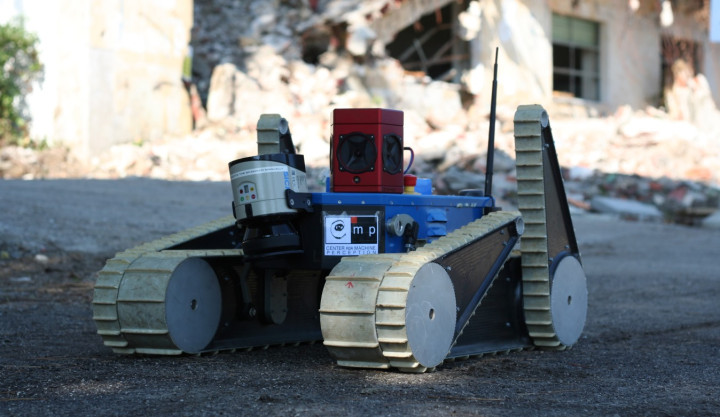Game technology can make emergency robots easier to control
Robotics
A method borrowed from video gaming can make remote-controlled emergency response robots easier to use – enabling the operator to focus more on the dangerous situations they face.

An international research team is adapting a technique known to gamers as “free look control”, to emergency response robots, which will enable the robots to mimic way the human body turns in relation to the movement of the head and direction of sight.
Petter Ögren, Associate Professor at the Center for Autonomous Systems (CAS) at Stockholm’s KTH Royal Institute of Technology, says the technique would allow a more natural interaction with the robot than currently in use when the so-called unmanned ground vehicles (UGV) are sent into burning or collapsed buildings and other places too dangerous for human responders.

“The idea is to reduce the mental strain on the operator, so they can focus on the environment they are dealing with,” he says.
With free look control, an operator interacts with a remote controlled robot in much the same way they would with an avatar in role-playing or first-person shooter games such as Call of Duty.
But emergency response is no game. Time is precious and it’s critical for those controlling the robots to quickly attain what responders call “situational awareness” – the understanding of the environment and what is happening in it. Situational awareness enables an operator to maintain a mental picture of their environment. In a burning house, the operator keeps track of in which room the robot has been, and when it's time to go upstairs to search the next floor.
While the current standard, “tank control” is more straightforward to implement, it takes more concentration to use. The camera movements and the robot’s body movements are each directed by different levers that are linked to different pieces of hardware, says Ögren. In other words, they are controlled independently of each other.
But with free look control, the commanded direction of motion of the robot is always interpreted relative to the view of the camera. So if the robot is looking to the right, the forward control lever will move the robot toward the direction in which it is looking. The operator will not have to take the orientation of the robot into account, which is the case when using tank control.

The robot is also able to easily move perpendicular to its direction of view, a technique gamer’s call “strafing”, which is a quite natural thing to do when conducting tasks such as searching an environment for victims.
Ögren says that in tests that the team conducted with a fire brigade in Pisa, Italy, 12 out of 16 users preferred free look control. One of the tests included searching an indoor industrial environment for two minutes, trying to find as many markers as possible.
“Using tank control, the average was 4.5 markers per user. Using free look control, they found an average of 6,” he says.
The research was conducted within the framework of the EU project, Long-Term Human-Robot Teaming for Robot-Assisted Disaster Response (TRADR), which is included in the Seventh Framework Programme, FP7. In addition to CAS at KTH, researchers from Germany, Switzerland, Netherlands and Italy are involved in the project.
Peter Larsson/David Callahan
For more information, contact Petter Ögren at +46 8 - 790 66 46 or petter @ kth.se.

